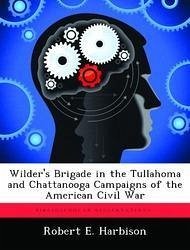The thesis is a historical analysis of Colonel John T. Wilder's infantry brigade in the Tullahoma and Chickamauga campaigns of the American Civil War. In 1863 General Rosecrans, commander of the Army of the Cumberland, authorized Wilder to mount the brigade on horseback and rearm it with Spencer repeating rifles, giving the brigade unsurpassed mobility and firepower. The thesis examines the mounting and rearming of the brigade, then examines the role the brigade played in the Army of the Cumberland through the Chickamauga campaign. The primary research question concerns how effectively the leadership in the Army of the Cumberland employed the brigade in light of its capabilities. Subordinate questions concern Wilder's leadership, the impact of technology on the performance of the brigade, and the brigade's potential for offensive operations. The thesis concludes that the leadership of the Army of the Cumberland, in particular General Rosecrans, did not employ the brigade well. Lack of a clear concept of how to employ the brigade and command and control problems led to ineffectual tasks and minimal contributions. Wilder's personality compounded the problem. During the campaigns, the brigade's Spencer repeating rifles proved to be an improvement over standard-issue rifled muskets. The mobility of the brigade was its most influential asset, but the army was not able to take advantage of it.
Hinweis: Dieser Artikel kann nur an eine deutsche Lieferadresse ausgeliefert werden.
Hinweis: Dieser Artikel kann nur an eine deutsche Lieferadresse ausgeliefert werden.








